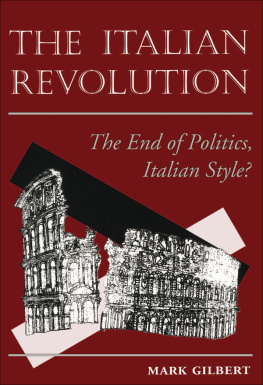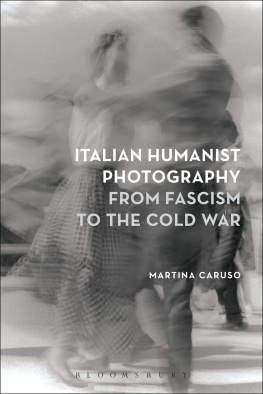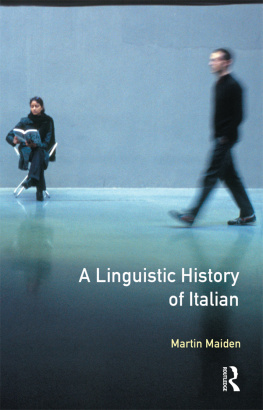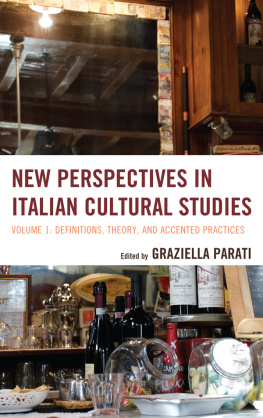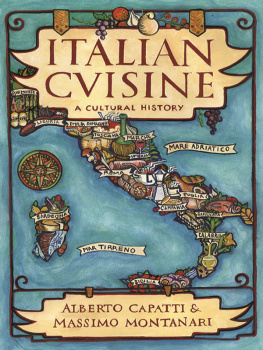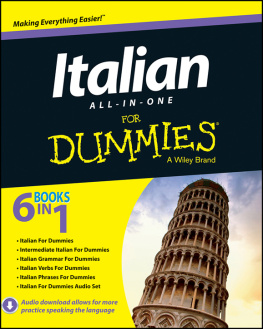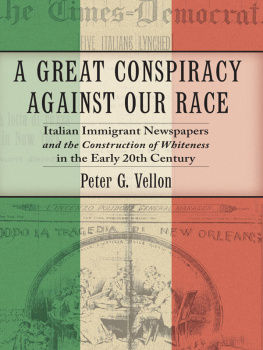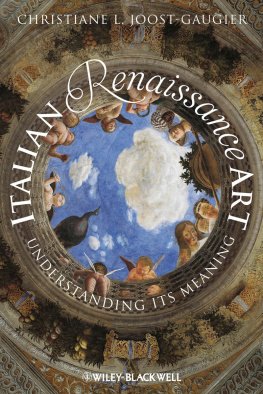The Red Brigades and the Discourse of Violence
This book explores the communicative practices of the Italian radical group Red Brigades (Brigate Rosse, or BR), the relationship the group established with the Italian press, and the specific social historical context in which the BR developed both its own self-understanding and its complex dialectical connection with the society at large. The BRs worldview and the dominant ideology(ies) mediated by the press are treated as competing responses to structural issues of Italian history: the structural weakness of the nation state, the contradictions of an uneven economic development, and the consequent struggle of the bourgeois class to achieve hegemonic rule.
Marco Briziarelli is Assistant Professor in the Department of Communication and Journalism at the University of New Mexico.
Routledge Studies in Modern European History
1 Facing Fascism
The Conservative Party and the European dictators 19351940
Nick Crowson
2 French Foreign and Defence Policy, 19181940
The Decline and Fall of a Great Power
Edited by Robert Boyce
3 Britain and the Problem of International Disarmament
19191934
Carolyn Kitching
4 British Foreign Policy 18741914
The Role of India
Sneh Mahajan
5 Racial Theories in Fascist Italy
Aaron Gilette
6 Stormtroopers and Crisis in the Nazi Movement
Activism, Ideology and Dissolution
Thomas D. Grant
7 Trials of Irish History
Genesis and Evolution of a Reappraisal 19382000
Evi Gkotzaridis
8 From Slave Trade to Empire
European Colonisation of Black Africa 1780s1880s
Edited by Olivier Ptr-Grenouilleau
9 The Russian Revolution of 1905
Centenary Perspectives
Edited by Anthony Heywood and Jonathan D. Smele
10 Weimar Cities
The Challenge of Urban Modernity in Germany
John Bingham
11 The Nazi Party and the German Foreign Office
Hans-Adolf Jacobsen and Arthur L. Smith, Jr.
12 The Politics of Culture in Liberal Italy
From Unification to Fascism
Axel Krner
13 German Colonialism, Visual Culture and Modern Memory
Edited by Volker M. Langbehn
14 German Colonialism and National Identity
Edited by Michael Perraudin and Jrgen Zimmerer
15 Landscapes of the Western Front
Materiality during the Great War
Ross J. Wilson
16 West Germans and the Nazi Legacy
Caroline Sharples
17 Alan S. Milward and a Century of European Change
Edited by Fernando Guirao, Frances M. B. Lynch, and Sigfrido M. Ramrez Prez
18 War, Agriculture, and Food
Rural Europe from the 1930s to the 1950s
Edited by Paul Brassley, Yves Segers and Leen Van Molle
19 Totalitarian Dictatorship
New Histories
Edited by Daniela Baratieri, Mark Edele and Giuseppe Finaldi
20 Nurses and Midwives in Nazi Germany
The Euthanasia Programs
Edited by Susan Benedict and Linda Shields
21 European Border Regions in Comparison
Overcoming Nationalistic Aspects or Re-Nationalization?
Edited by Katarzyna Stokosa and Gerhard Besier
22 The Red Brigades and the Discourse of Violence
Revolution and Restoration
Marco Briziarelli
First published 2014
by Routledge
711 Third Avenue, New York, NY 10017
and by Routledge
2 Park Square, Milton Park, Abingdon, Oxon OX14 4RN
Routledge is an imprint of the Taylor & Francis Group,
an informa business
2014 Taylor & Francis
The right of Marco Briziarelli to be identified as author of this work has been asserted in accordance with sections 77 and 78 of the Copyright, Designs and Patents Act 1988.
All rights reserved. No part of this book may be reprinted or reproduced or utilised in any form or by any electronic, mechanical, or other means, now known or hereafter invented, including photocopying and recording, or in any information storage or retrieval system, without permission in writing from the publishers.
Trademark Notice: Product or corporate names may be trademarks or registered trademarks, and are used only for identification and explanation without intent to infringe.
Library of Congress Cataloging-in-Publication Data
Briziarelli, Marco.
The Red Brigades and the discourse of violence : revolution and restoration / by Marco Briziarelli. 1st Edition.
pages cm. (Routledge studies in modern European history ; 22)
Includes bibliographical references and index.
1. Brigate rosseHistory. 2. TerrorismItaly. 3. Terrorism and mass mediaItaly. 4. ItalyEconomic conditions20th century.
I. Title.
HV6433.I8B75 2014
363.3250945dc23
2013051325
ISBN13: 978-1-138-77692-0 (hbk)
ISBN13: 978-1-315-77293-6 (ebk)
Typeset in Sabon
by IBT Global.
Para mi Susana
e la mia Emmina (Uccellino)
Contents
I would never have been able to finish this book without the guidance of my mentors, help from friends, and support from my family and my dear wife. First of all, I would like to express my deepest gratitude to Andrew Calabrese, for his excellent guidance. Above all and most crucially, he provided me unflinching encouragement and support. I am indebted to him more than he knows. I also gratefully acknowledge Janice Peck, Pete Simonson, Isaac Reed, and Stewart Hoover for their advice, their supervision, their crucial contributions, and last but not least their friendship. One of the reasons why I miss Colorado is indeed because of you.
I would also like to thank my family, my mother Rita and my elder sister Sara, my brother-in-law Ciotola and my favorite nephew, Smuffo. A special mention goes to my father, Franco, who was my best interlocutor during the thinking/writing process. They all were always supporting me and encouraging me with their best wishes. A big grazie goes to Perugias historic nucleus Anitre Silvatiche: Tafo, Mastro, Abu, Crispo, Tommy and Fojo. I also would like to thank my daughter Emma for her generous smiles. Finally, words fail me in expressing my appreciation to my wife Susana whose dedication, love, and persistent confidence in me has taken the load off my back. I owe her for unselfishly letting her intelligence and passions collide with mine. I love you.
1.1 Necessary or Elective Affinities? the Red Brigades and a Normal Country
The present book recounts the story of the Brigate Rosse (BR), a radical group that in the 1970s wanted to change the course of Italian history. The BR did in fact change it, although it also ended up being subject to it in unfortunate ways that could not be anticipated. At the same time, this is a book about a country that vehemently condemned the organizations activities without recognizing in the BR its own dialectical self, its contradictions.
On the one hand, one finds Italy a very peculiar country that has for a long time aspired to normality. However, the more it aspired to the dominant understanding of social and political norms, the more the dialectical nature of its own project of modernity became evident: a country that combines liberal-democratic ideology with an enduring neo-corporatist tradition; a nation which by prosperity and population belongs to the side of France, Britain, and Germany but that has never played a comparable role in the affairs of the continent, and has rarely been regarded as a diplomatic partner or rival of much significance (Anderson, 2002, p.1); a society permanently walking along the borderline of dysfunctionality, which at the same time consistently produces remarkable examples of wealth, culture, and civic virtue.




